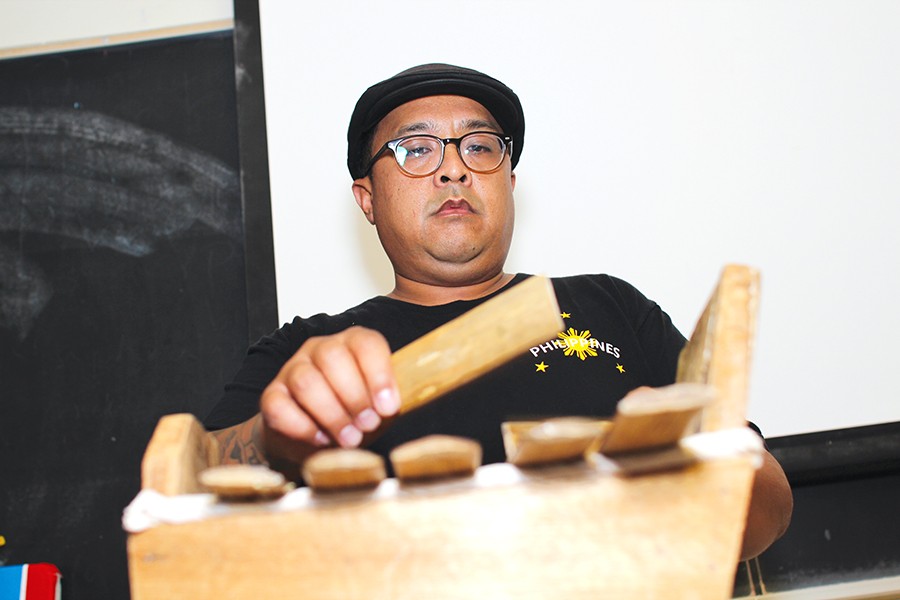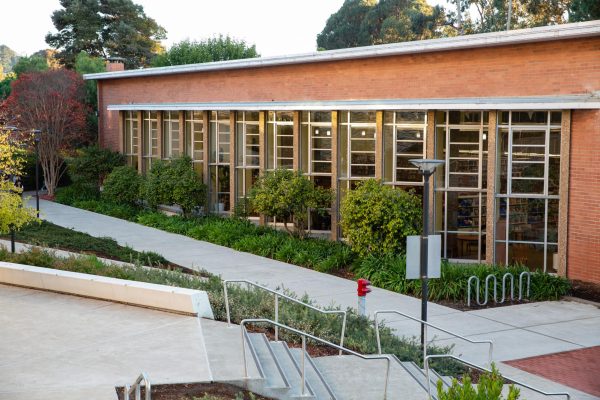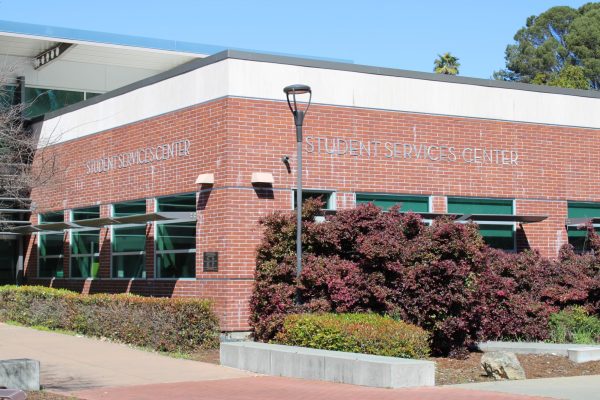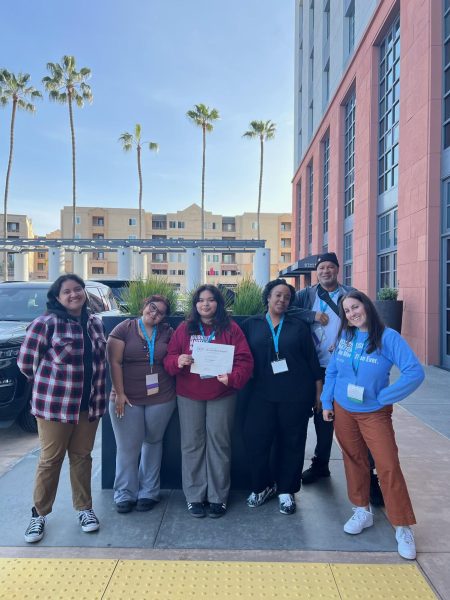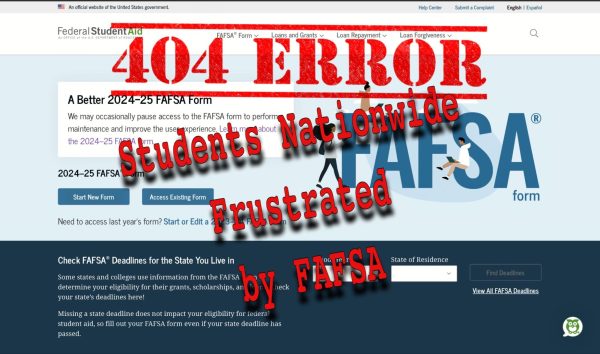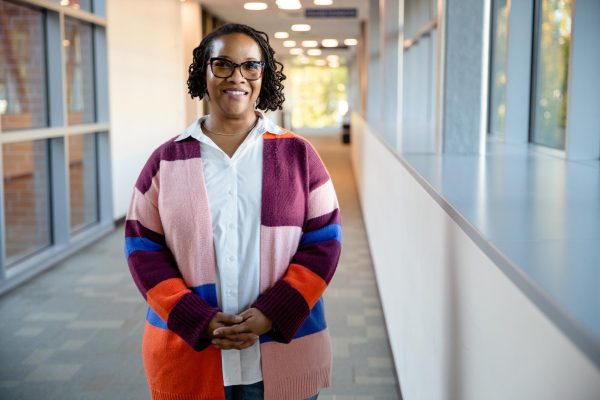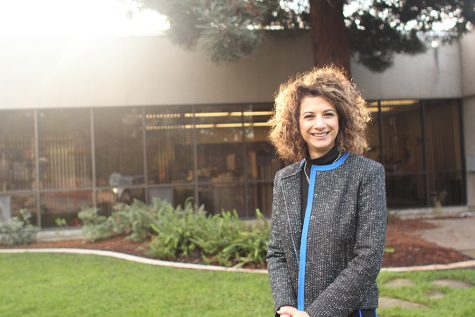Filipino club exposes ‘forgotten’ culture
Club invites guest speakers to highlight lineage, culture
Christian Urrutia / The Advocate
Mathematics professor Edward Cruz plays a Gabbang during the Filipino Heritage Month event held by the Filipino American Student Union in B-12 on Friday.
October 21, 2015
The Filipino American Student Union invited three guest speakers to talk about the cultural significance and forgotten history of Filipino Heritage Month on Friday in B-12.
FASU club members, who helped organize the event, introduced CCC students to the three guest speakers. One of them was mathematics professor Edward Cruz, who serves as the club’s adviser.
Cruz presented his musical instruments to the class, talking about different types of traditional Filipino music and dances.
“Many Filipino instruments are made of bamboo — a very lovely plant native in Philippines,” he said. “Filipino music has had some influences from the trade routes that carried (instruments) through Eastern Asia and Spain.”
When Spain colonized the Philippines, he said the conquistadors left some of its influence in (Filipino) food and music.
Cruz said that he was part of his Filipino folklore dance group in college and participated in the Filipino club where he gathered with other Filipino students as a community.
“I want my kids to hold to the Filipino traditions and culture,” Cruz said. “I spend my time teaching my son how to play these instruments. My daughter knows some traditional Filipino dances. It is good to express ourselves through art.”
In celebration of Filipino Heritage Month, FASU club members had the chance to promote their club and express how it is important to all underrepresented Filipino students at CCC.
FASU President Janelle Knudson said, “FASU means a lot to me. We want to build unity not only for Filipinos, but for all underrepresented groups.”
Gerald Macadangdang, the co-founder of FASU and CCC alum, said that he had the idea to build a club to represent all Filipinos.
“I thought of the idea during the Fall Festival last year,” Macadangdang said. “I saw the Black Student Union and other represented racial groups. I talked to (Knudson) to see if we could build one for Filipinos.
“I feel that Filipinos need representation in this community,” he said. “I have established connections with some people who can help us, including (Student Life Coordinator) Erika (Greene) and Cruz who is currently our adviser for FASU.”
The guest speakers also introduced CCC students to Filipino history, stressing that only few know about it, and how many have forgotten their roots.
The second guest speaker, Lily Ann Villaraza, chairperson of the Filipino studies department at City College of San Francisco, showed students a film about the Delano grape strike of 1965, when Filipino field workers refused to have their labor exploited through low pay in brutal working conditions.
“Many people tend to associate the Grape Strike solely with Mexicans,” she said. “They don’t know it actually started by Filipinos.”
Villaraza said Filipinos who struggled for agricultural rights were known as “manongs.” The majority were old men who could not marry because of their horrible working conditions.
“All they were asking from farm growers was for a wage increase to get $1.40 an hour for 10 to 12 hours of work a day,” she said. “Then Filipinos got together and decided to strike for higher wages. They wanted to be treated better without fear of losing their jobs.”
The third guest speaker, Kristian Kabuay, a Philippine script artist, said Filipinos lack identity in culture and language.
“Identity is trust,” Kabuay said. “If there is no identity, there is no trust.”
He talked about the Filipino writing system, and his attempts to educate students about the writing scripts. “I want to revive the writing script and culture of the Filipinos, as they are forgetting their roots.
“It surprised me that Filipinos did not have a language of their own, as they used the Roman alphabet to advertise their products. It seemed to me they were trying to be someone else,” he said. “They didn’t have something from their own.”
He started his writing script website, BayBayin.com to educate people about the Filipino writing system.
During her discussion panel, Villaraza included her experience in participating in the Filipino culture night, where students gathered as a community and engaged in their culture.
She said culture nights are important events for youths to understand Filipino culture, and provide a time for Filipinos to decipher their histories.
Cruz said he had also joined the Filipino cultural night. “Through (Filipino) culture night, I watched many Filipino dances based on rituals and traditions. The Philippines has a very rich culture in dance and music.”
Students seemed to enjoy the panel discussion as Cruz invited several students to try out his bamboo tube instruments. Students stomped the tubes against the ground to emit the sound “that goes from high to low.”
“The (Bamboo Tube) instrument was a cool experience,” health and human services major Shelby Wichner said.
“I actually came here to volunteer in helping for the event, but I really enjoyed it. There were many things I didn’t know about the Filipino culture, such as the Philippines having many islands.”


